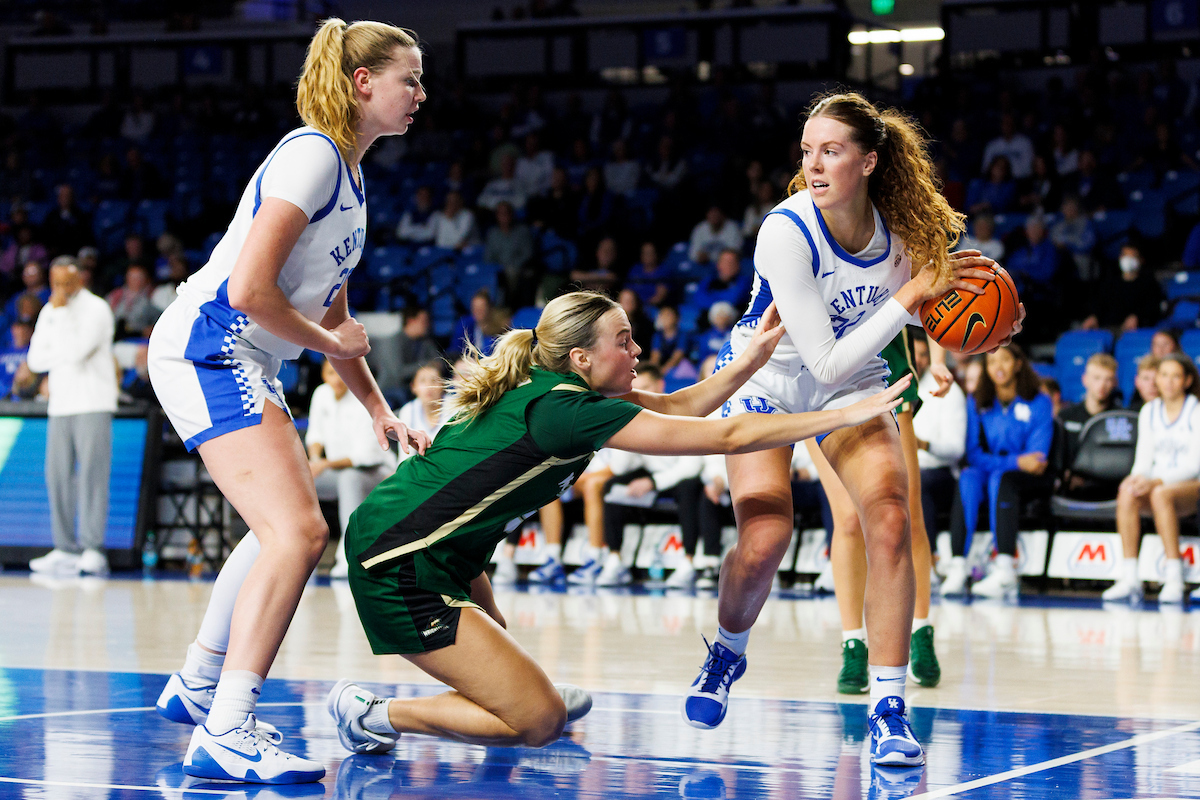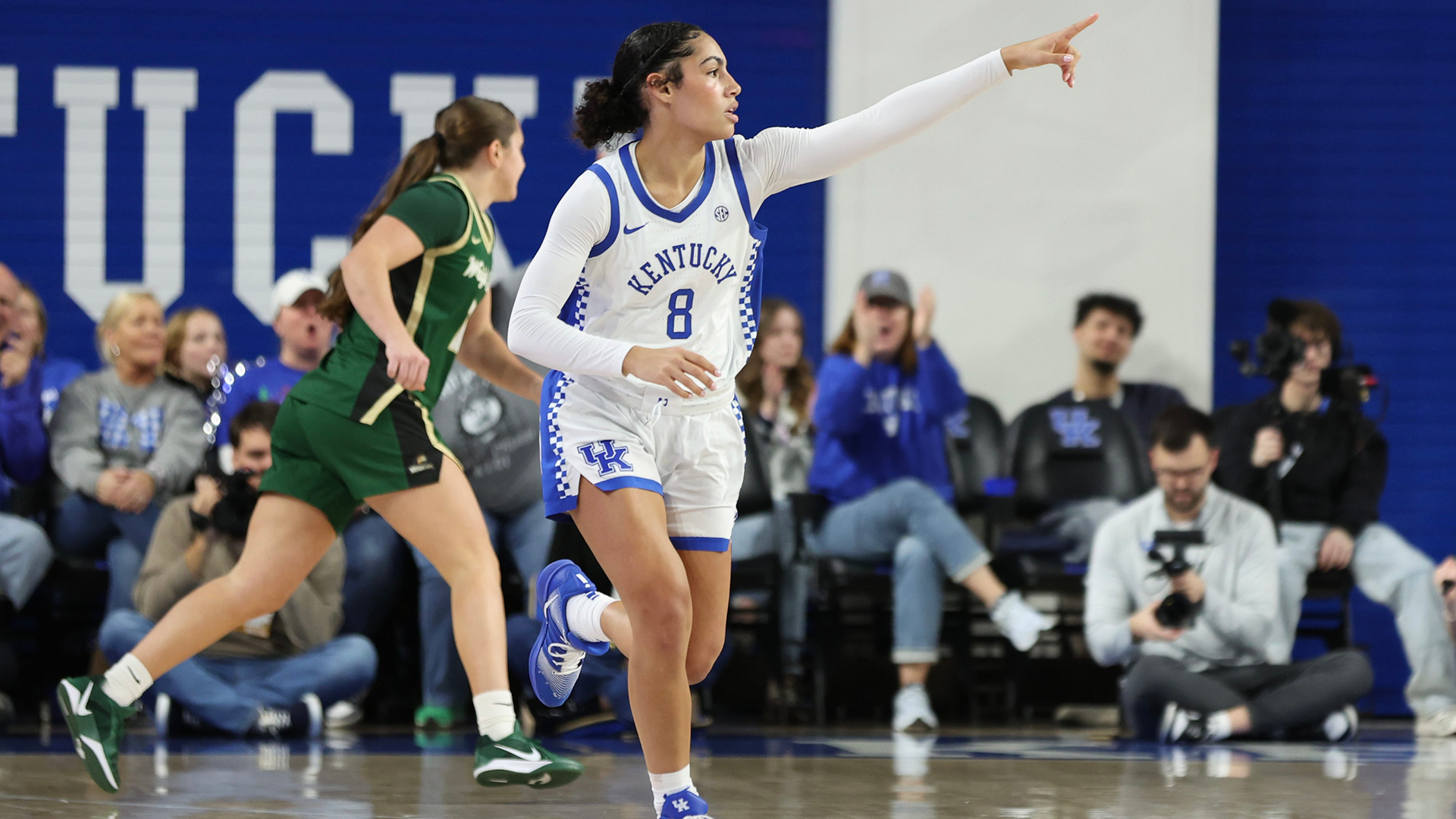In late July, nine student-athletes — Bria Goss (women’s basketball), Jared Phillips (track/cross country), Charlie Reymann (men’s soccer), Montana Whittle (gymnastics), Danielle Fitzgerald (women’s soccer), Katrina Keirns (swimming and diving), John Sutton (rifle), Kirsten Lewis (women’s tennis), Haley Mills (women’s golf) — participated in the second of two annual service trips to Ethiopia sponsored by UK Athletics. Over the next week, they will take turns sharing their experiences through a series of blog entries. Please note that these posts are the student-athletes’ personal reactions and the views expressed do not necessarily reflect those of the University of Kentucky or UK Athletics.Today, Jared Philips writes about the group’s arrival in Ethiopia.By Jared PhillipsToday’s the day. We are traveling to Ethiopia! Our team got up early and headed to the airport where waiting in lines, flight delays and confiscation of necessary items at security awaited us. However, we were all incredibly excited for this trip, so these events were merely slight bumps in the road. We boarded our nearly 13-hour flight to Addis Ababa shortly after noon in Washington, D.C., and finally touched down on a cloudy, cool morning at Bole International Airport at roughly 9:30 a.m. local time. Our team’s exhaustion quickly turned into exhilaration after landing in what was a novel experience for all of us but Jason (Schlafer, the senior associate athletic director accompanying student-athletes): Addis Ababa, Ethiopia.
Made it safely to Addis Ababa, Ethiopia with a full day ahead of us! #UKtoEthiopia
— montana whittle (@montanawhittle) July 24, 2014
Surprisingly quickly, we made it through customs, picked up our baggage, and walked out of the terminal. I got a taste of how kind the Ethiopian people are when a lady stopped me as our team was leaving the terminal and personally welcomed me to Addis Ababa; it was rather touching to see someone as welcoming as she was. As soon as we were outside, we were in awe what was before us: a mixture of nature and urban life stretching for miles and miles. The weather was nice and cool compared to Lexington, and the mass of cars in the airport parking lot awaited us. We met up with Mark, who would be leading us around to the various places on the trip, and Nikki, our photographer for the week and departed for our guesthouse.Immediately, our group got to witness the poverty and crowdedness that characterize the cities of third-world countries. People were everywhere: walking in the streets, begging and trying to sell numerous goods, and crammed into blue and white vans that served as taxis for the city. Upscale buildings stood next to tiny tin shacks, and rudimentary slabs of concrete under construction littered the landscape before us. The traffic was organized chaos, as cars, trucks, and vans would come and go with not a stop sign or traffic light in sight. We arrived at the Addis Guesthouse, across from a field where tents of cloth, towels, and mud sprung up from the ground. We met two of the local guys that would be assisting us this week, Girma and Wario, who dropped our luggage off in our rooms, and we soon departed for our first visit.As our driver navigated through the Addis traffic, Mark explained to us that the neighborhood we would visit is mainly occupied by widows and their children, and that we would be giving them bags of coffee and sugar and mattresses, complete with sheets and a blanket. We arrived outside a community center and made our way in through a metal gate with barbed wire, a common scene in Addis. What happened next absolutely floored me. As soon as the widows and children saw us, they welcomed us with such warmth and love, peppering us with hugs and kisses. The joy evident on their faces was contagious. After a few hugs, I could not help but beam with joy simply being in their presence. We hastily made our way into the community center where everyone sat in a circle and each member of our team was introduced to much applause. The women sang worship songs with clapping and rejoicing, and even though none of our group could understand what was being sung, it was a pretty neat experience. Several women then proceeded to share their testimony of how their sponsorship through the program that Mark is in charge of has completely changed their lives by giving them food to eat and providing for their children’s healthcare and education. In everything these women thanked God for what they had, and it struck a chord with me: I complain about my phone being slow sometimes, yet these women are so thankful for the very little they have. Such incredible conviction.Afterward, we handed out bags of coffee and sugar to these women, who thanked us profusely for them. We also managed to give out mattresses and sheets to the women who needed replacements. We then got to spend time with one another, meeting each other and playing with the kids. One woman, Tonga, pulled me aside and continued to thank the group and me for coming to visit them and eagerly introduced me to her daughter. She kept telling me how we were such a blessing to them and how grateful she was for the things we handed out. Although it felt good to provide for these people’s physical needs, I was humbled by her gratitude and thankful to her for how loving and gracious the hearts of the widows are. I got the joy of hanging out with some of these kids and seeing their faces light up when Montana handed out some chocolate. Two of these children I will remember forever: Biniyam, a 13-year-old boy, and Doriba, his 10-year-old sister. We bonded immediately and Haley and I got to carry their mattress back to their house. It was fantastic seeing these children who had nearly nothing, yet were so joyful and free of burdens. Walking through the neighborhood, we saw some houses that were pretty decent for their standards, but as we got closer we saw things for what they were. In the garages and backyards of these people, we saw widows and children in makeshift homes. Once we reached Biniyam’s home, he invited us inside and showed us around. The house was no bigger than my bedroom at the guesthouse, yet they kept saying how big it was and were so proud of their belongings. These people are so thankful for the very little they have, and I was yet again floored at their attitude; we may have comfort in America, but the joy that these people have is a treasure very much worth looking for and guarding with your life.We returned to the community center from Biniyam’s house for a lunch of fried egg sandwiches and sodas, then left to go deliver laptops to some of Mark’s friends and pick up supplies for his children. The area we were in, as Wario noted, is one of the nicest neighborhoods in Addis, yet it was not exactly middle-class America. Even something as subtle as being in a nice area of Addis rocked me. It was continued evidence that comfort and possessions do not equal joy, and possibly the absence of comfort and possessions (or the absence of finding your value in these things) contributes to the joy that people have. Once we dropped off the laptops, we left to go exchange our American dollars for Ethiopian birr and we stopped by the “Starbucks of Ethiopia:” Kaldi’s Coffee. Don’t get me wrong, I enjoy my coffee and I’m a big fan of the local coffee shops we have in Lexington, but nothing has come close to what I had today. The coffee is so rich that it doesn’t need any creamer, sugar or anything fancy. These Ethiopians know their coffee! After the coffee shop, we returned to the guesthouse to eat dinner and retire for the night, exhausted after a long yet rewarding day in Addis Ababa.



